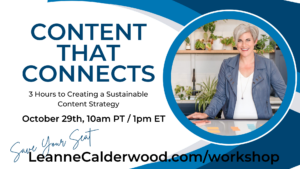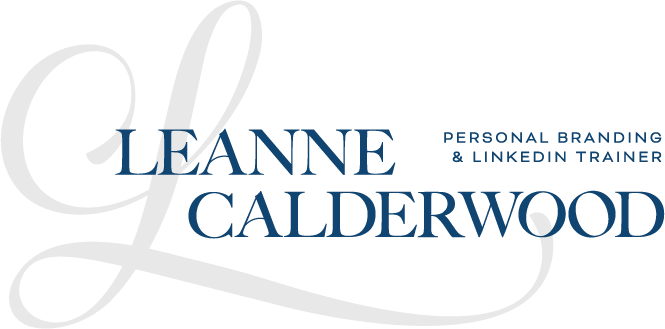If you still think LinkedIn is just a place to post your résumé and quietly…

4-Step Storytelling Framework for Introverts
It happens without fail. We’ll create compelling educational content for our social media platforms, spend hours perfecting the copy and the images, and it’ll be the simple post about something we did on the weekend that will get the most engagement.
In that post, you were telling a story – and storytelling receives much better engagement than our educational and seemingly inspirational posts.
Whenever I include storytelling in my blog posts, videos and social media, I receive more engagement. People can relate to stories, they can empathize with the struggle, and with the successful outcome. Your personal brand also becomes stronger and more established through storytelling and your community is drawn closer to you.
Let’s take a look at how we can tap into our own experiences to provide inspiration and encouragement to our peers through our stories.
Storytelling is “the art of using words or images to weave a narrative that elicits the listener’s imagination. Stories can be rooted in fact, or rooted in fiction, and when it comes to personal branding, factual storytelling is a powerful tool to help create a bridge between a sales professional and their customer. “
If you are looking for more authenticity in your content, a great place to find content is in your stories. When like-minded individuals share stories of challenge, success, struggle or perseverance, other community members find themselves reflected in the story, thus creating more trust and compatibility with the storyteller. If your story includes factual ways that our product or service has impacted someone’s life, your future customers can visualize the positive impact through the story.
Storytelling offers numerous benefits, especially in the context of personal branding and professional growth. By weaving personal experiences into your content, storytelling helps create a deeper emotional connection with your audience, making your message more memorable and impactful. It allows you to showcase authenticity and vulnerability, building trust and relatability among your peers, clients, or customers.
Storytelling can illustrate your expertise and values in a compelling way, helping to establish you as a thought leader in your field. When you share stories that reflect your challenges, successes, and lessons learned, you not only engage your audience but also inspire and motivate them, fostering a sense of community and loyalty. Ultimately, storytelling transforms your brand from just a name to a relatable, trusted entity that people want to connect with and support.
Storytelling is especially beneficial for introverts as it allows them to connect with others in a way that feels comfortable and authentic. For introverts who may feel hesitant to put themselves in the spotlight or engage in traditional networking, storytelling provides a powerful alternative. It enables them to share their thoughts, experiences, and expertise in a thoughtful, deliberate manner, which aligns with their natural communication style.
Through storytelling, introverts can build deeper, more meaningful connections without the pressure of large group interactions or on-the-spot conversations. This approach helps them establish authority and credibility in their field by highlighting their unique perspectives and insights in a way that resonates with their audience. By focusing on relatable narratives, introverts can foster a strong sense of empathy and trust, turning their quieter nature into a powerful tool for engagement and influence.
Nowadays, stories can be told in a variety of different mediums, including social media posts, e-newsletters, podcasts, blogs, videos and through our in-person interactions. Stories do not necessarily need to come from business or your career; rather the lessons of transformation from any life story can be related to business.
Here are 4 steps to help get you started on storytelling:
- Look at moments that were transformational – take inventory of instances throughout your life that offered moments of transformation for you. These moments can be from your career or business, but they can also be from other areas of your life. All stories of transformation have a lesson that can be applied to your professional world.
- Example of a moment that was transformational – learning how to ride a bike
- Take stock of the feelings you had during the story – regardless of the story, you had a reaction to what was happening to you. You had emotions, whether good or bad. Take note of those emotions and feelings; we’ll be revisiting them in step #4
- Example – learning how to ride a bike – feelings of anxiety, not wanting to fall off, not wanting to fail, not wanting to disappoint your parents
- Acknowledge the outcome – every story has a beginning, a middle and an end. The goal of a good story is to provide a conclusion, and your story should reveal the same. How does this transformational moment wrap up for you?
- Example – You did, indeed, learn how to ride a bike. Yes, you fell a few times, but you kept trying and you eventually did it. Your parents cheered you on through your repeated attempts
- Apply the lesson to business examples – the emotions and feelings you felt as you were in the story can be parlayed into advice or a tip for your community. If your story was about perseverance, there is a lesson there. If your story is about success, there are tips you can share to fast-track your community’s success. Tie the lesson of the story back to how it can help your client to create more trust and close the sales gap.
- Example – Learning how to ride a bike has helped you overcome the fear of failure, learn from each failed attempt, and the exhilaration of finally successfully achieving your goal.
Keeping these four principles in mind will help you build a bank full of stories and ideas that can help encourage and inspire your community.
What story can YOU share that will build a bridge between you and your community?
To hearing your stories,
Leanne
P.S. We dive deep into the art of storytelling during my Content That Connects workshop. We take this framework and dump it into compelling copy templates that you can use to communicate your message! Learn more and enroll here!

RELATED – The Importance of Personal Branding
RELATED – Beyond Merit: Why Your Personal Brand Matters in Today’s World
RELATED – Authentic Personal Branding



